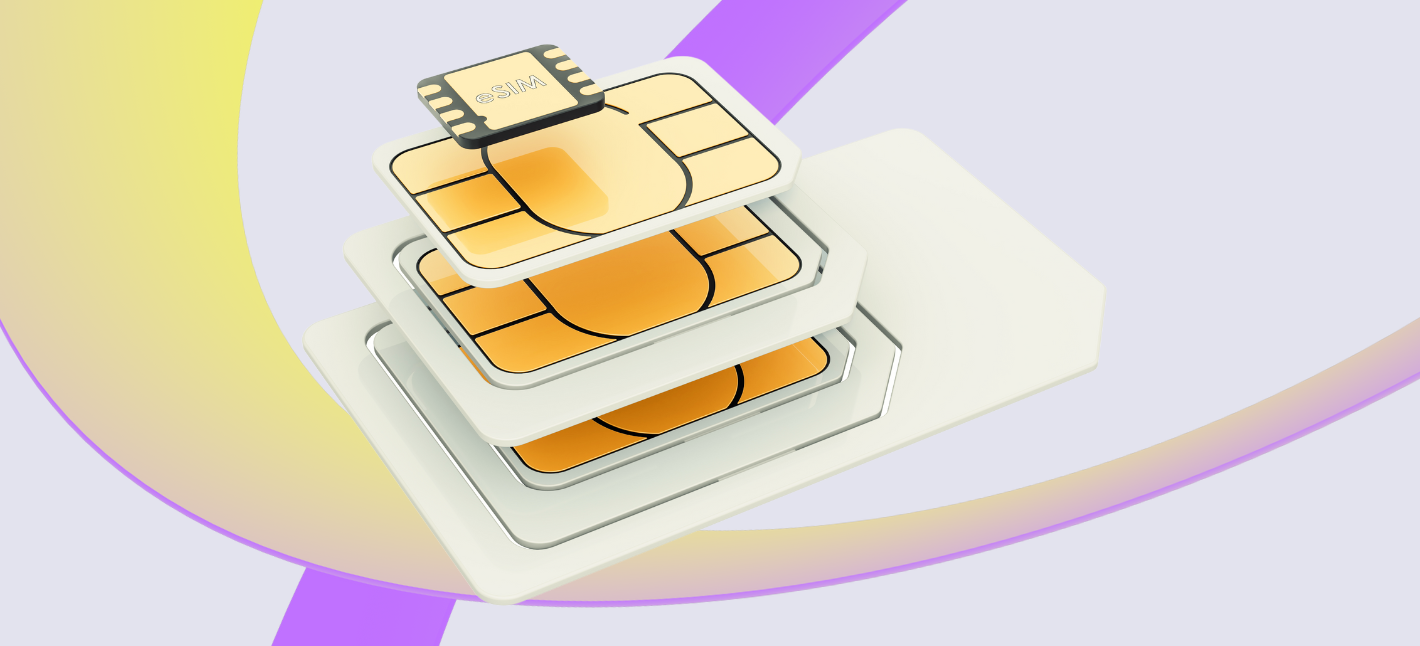Iot Sim Card Pricing IoT SIM Cards
The role of SIM playing cards in IoT connectivity is changing into increasingly important as the world advances in the path of a extra interconnected panorama. IoT, or the Internet of Things, refers to the huge network of gadgets that communicate with each other and change data to reinforce performance and efficiency. In this ecosystem, SIM playing cards function a very important part, facilitating wi-fi communication between devices.
SIM cards present the mandatory identification that allows IoT units to connect with mobile networks. The unique identification numbers programmed into these SIM cards enable units to authenticate their connections with service suppliers. This is essential as it helps stop unauthorized access and ensures that knowledge transfers happen securely.
Sim Card For Iot Devices Global IoT ecoSIM Card
Different types of SIM playing cards can be found for IoT applications. Traditional SIM cards, embedded SIMs (eSIM), and detachable SIMs all serve different needs in the IoT area. Traditional SIM playing cards can be inserted into units needing connectivity, whereas eSIMs are embedded instantly into devices and are more adaptable to modifications in service suppliers. The versatility of eSIM technology plays a big function in various IoT applications.

IoT gadgets are available numerous styles and sizes, from smart home appliances to industrial machinery. Each sort of gadget could have different connectivity needs depending on its objective. SIM cards can present numerous data plans tailored for specific use instances, optimizing communication based mostly on bandwidth necessities, information utilization, and different factors. This flexibility is instrumental in enhancing the overall performance of an IoT ecosystem.
4g Iot Sim Card IoT SIM network-independent IoT SIM
Another facet of the SIM card's function in IoT connectivity is the flexibility to track and manage units remotely. Mobile network operators supply platforms that allow customers to observe their IoT devices in real-time. This capability is particularly significant in industries similar to logistics and transportation, where understanding the exact location of assets can lead to better operational efficiency and cost savings.
As IoT devices proliferate, managing connectivity becomes more complex. Here, the role of SIM cards extends to enabling centralized management solutions that help administer multiple devices simultaneously. This is particularly advantageous for enterprises operating large fleets of linked devices, which can track performance and connectivity more successfully by way of a single administration interface.
Iot Machine To Machine Sim Card Freeway simHERO IoT Prepaid SIM
A main concern in the Internet of Things is security. With hundreds of thousands of units related to the web, guaranteeing the integrity and confidentiality of information is paramount. SIM playing cards contribute to this safety structure by offering encryption capabilities that safeguard sensitive info. The cryptographic keys embedded within SIM cards help safe communications between gadgets, making it difficult for unauthorized entities to intercept or manipulate information exchanges.
Moreover, the function of SIM playing cards is evolving as know-how develops. The introduction of Narrowband IoT (NB-IoT) and Long Range Wide Area Networks (LoRaWAN) has opened new avenues for connectivity, notably for low-power and long-range purposes. SIM cards designed for these specific technologies allow gadgets to function efficiently over long distances while consuming minimal energy. This is very relevant for remote monitoring and control methods, where replacing batteries may be expensive and challenging.
While SIM cards have made strides in enhancing IoT connectivity, additionally they face challenges. For instance, compatibility issues come up when integrating varied units across completely different networks. The introduction of standards and rules aimed toward harmonizing IoT services is an ongoing effort, but the tempo of innovation typically outstrips these measures. Iot Sim Card South Africa. Adapting SIM playing cards to meet various requirements is important for ensuring a seamless experience within the burgeoning IoT landscape.
Sim Card Iot Devices IoT SIM Card M2M Devices

The impact of 5G know-how can be reshaping how SIM playing cards function inside IoT connectivity. With significantly improved speeds and lowered latency, 5G offers capabilities that redefine IoT purposes, ranging from smart cities to autonomous automobiles. SIM cards designed particularly for 5G networks will be crucial in leveraging the complete potential of those next-generation capabilities.
In numerous sectors, together with agriculture, healthcare, and smart cities, the role of SIM playing cards becomes increasingly important. In agriculture, for example, sensors linked check my reference via SIM playing cards can monitor soil circumstances, enabling farmers to make knowledgeable selections about irrigation and fertilization. Similarly, in healthcare, distant patient monitoring units make the most of SIM cards to transmit vital health knowledge to healthcare suppliers, enhancing patient care.
The growing reliance on cloud companies in IoT applications typically necessitates sturdy data transfer solutions. SIM playing cards facilitate these connections, enabling gadgets to send and receive info from cloud platforms successfully. This capability not only enhances the performance of IoT options but also improves the power to investigate data for better decision-making.
As connectivity evolves, the importance of SIM playing cards in sustaining a robust ecosystem cannot be overstated. Their position in figuring out, securing, and managing gadgets is central to ensuring seamless communication within the IoT landscape. Whether it's via conventional SIM playing cards or newer technologies like eSIMs, their significance will only continue to grow in an increasingly related world.
Global Iot Sim Card IoT SIM Cards Fair pricing reliability expert
The integration of artificial intelligence and machine learning into IoT options signifies one more evolution in connectivity. SIM cards that can deal with enhanced information processing capabilities might be essential for the smart decision-making processes enabled by these technologies. Collectively, these advancements will result in extra clever techniques capable of adapting to changing circumstances autonomously.
In conclusion, the position of SIM playing cards in IoT connectivity is multifaceted and important for the expansion and sustainability of an interconnected world. By ensuring secure identification, facilitating remote management, and adapting to new technologies, they play a crucial half within the evolution of IoT functions throughout varied sectors. As technology advances, the importance of SIM cards will only intensify, driving further innovations and improvements in connectivity strategies.

- SIM playing cards present a safe and distinctive identifier for IoT gadgets, enabling trusted communication inside networks.
- They facilitate seamless connectivity in diverse environments, from urban areas to distant areas, enhancing the reliability of IoT functions.
- With the appearance of Embedded SIM (eSIM) technology, IoT devices can switch carriers easily, enhancing network adaptability and decreasing downtime.
- SIM playing cards contribute to knowledge encryption, guaranteeing that the data transmitted between gadgets and networks stays safe in opposition to unauthorized entry.
- They enable over-the-air updates, allowing manufacturers to push firmware upgrades directly to IoT devices without bodily entry.
- By integrating subscription administration, SIM playing cards assist in sustaining and monitoring knowledge plans, optimizing costs for businesses deploying large IoT networks.
- SIM cards improve gadget monitoring capabilities, making them essential for logistics and asset management in various industries.
- They support multi-network connectivity, which enhances redundancy and reduces the risk of communication failures in critical functions.
- The function of SIM playing cards in network slicing allows for tailor-made connectivity options, guaranteeing that totally different IoT purposes receive the appropriate bandwidth and latency.
- SIM playing cards are pivotal in facilitating system provisioning and management, streamlining the deployment process for large-scale IoT implementations.undefinedWhat is a SIM card and why is it necessary for IoT?
Iot Single Sim Card Global IoT ecoSIM Card
A SIM card is a small chip that enables gadgets to connect to mobile networks. In IoT, it supplies safe communication and allows units to send and obtain information, making them accessible and manageable remotely.
How do SIM playing cards enhance data safety in IoT devices?
SIM playing cards utilize encryption and authentication protocols that ensure safe communication between the gadget and the network, protecting against unauthorized entry and knowledge breaches.
What types of SIM cards are utilized in IoT applications?
M2m Iot Sim Card IoT SIM Cards Explained Connectivity
IoT functions typically use specialized SIM cards, corresponding to M2M SIMs and eSIMs, designed for various environments and providing enhanced durability, remote administration, and adaptability in connectivity options.
Can IoT devices operate with out SIM cards?
Vodafone Iot Sim Card Global IoT SIM Card LOT 100
While it is attainable for IoT units to connect via Wi-Fi or different wi-fi technologies, SIM cards are crucial for cell connectivity and are important for units that require extensive protection and roaming capabilities.
What is the distinction between traditional SIMs and eSIMs in IoT?
Traditional SIM cards are bodily devices inserted into units, while eSIMs are embedded chips that may be programmed remotely, providing higher flexibility for device producers in managing connectivity with you can try this out out hardware modifications.
How do SIM cards contribute to price management in IoT deployments?
Global Nb-Iot Sim Card IoT SIM network-independent IoT SIM
SIM playing cards allow optimal connectivity solutions, permitting companies to select appropriate data plans and handle knowledge usage effectively, helping to cut back operational prices related to data transmission (Iot Board With Sim Card).
What are the challenges related to using SIM playing cards in IoT?
Challenges can include managing a quantity of SIM cards for varied devices, making certain compatibility, addressing community coverage issues, and coping with potential fraud or security vulnerabilities in cellular communication.
How can companies select the proper SIM card for his or her IoT needs?
Iot Sim Card India IoT SIM card Affordable global connectivity
Selecting the right SIM includes considering elements like community coverage, knowledge utilization, device compatibility, long-term scalability, and security measures. Consulting with service providers might help align selections with operational wants.
What function do SIM playing cards play in future IoT innovations?
SIM playing cards are vital for enabling next-generation IoT innovations, as they facilitate seamless connectivity, drive automation, and enhance device management capabilities, thus supporting more advanced applications like smart cities and remote healthcare.
Comments on “Iot M2m Sim Card SIM Starter Kit”